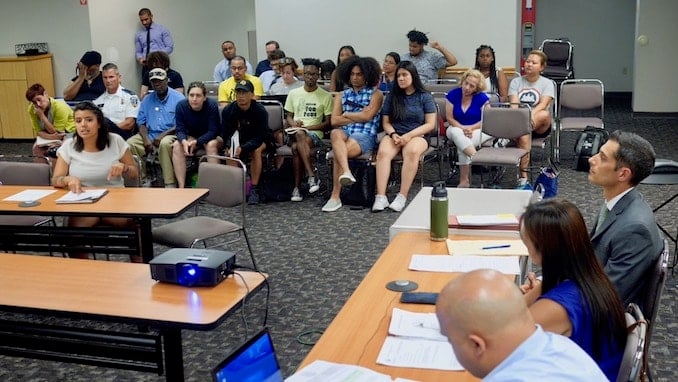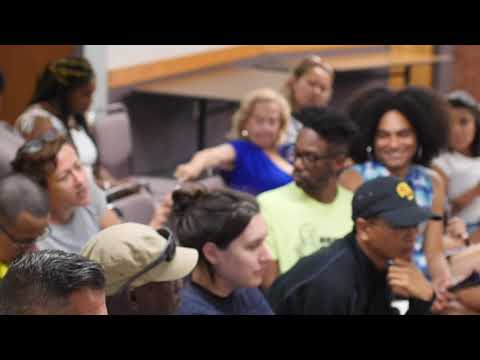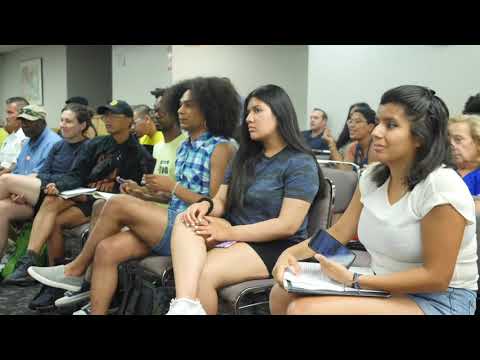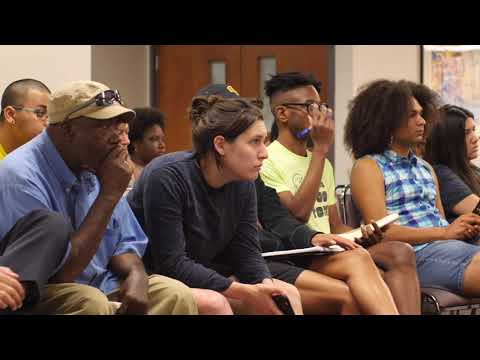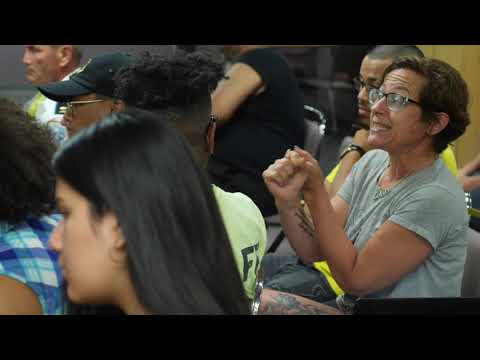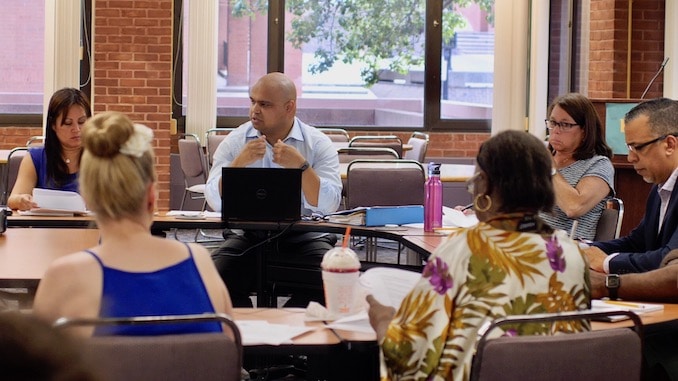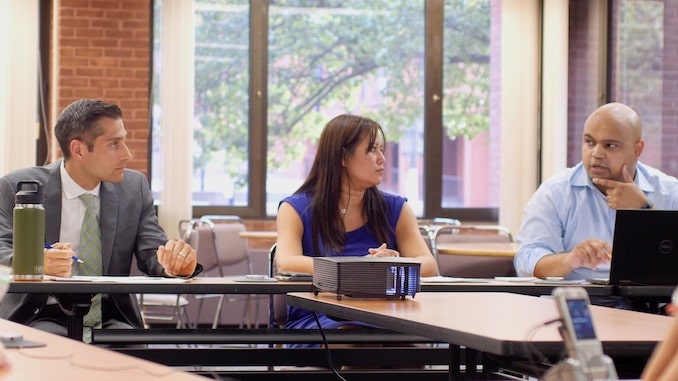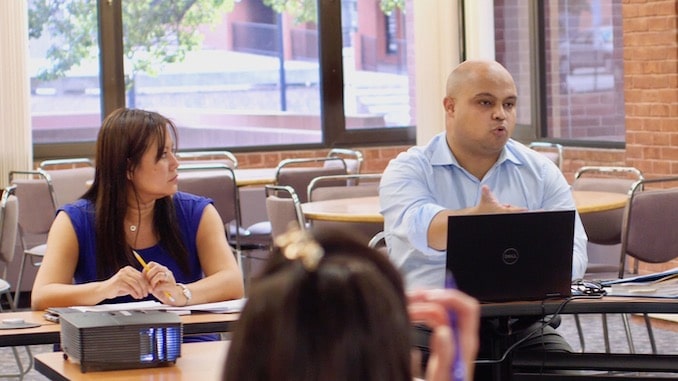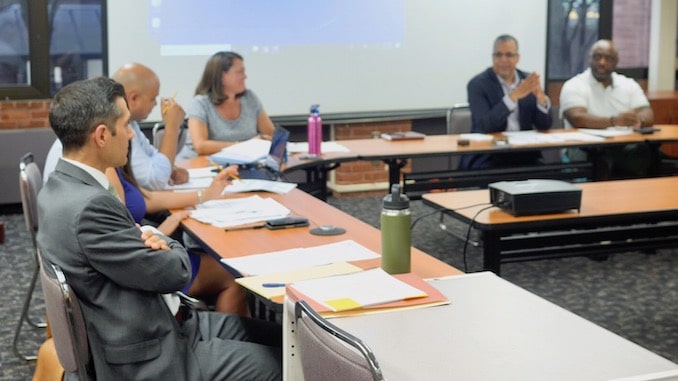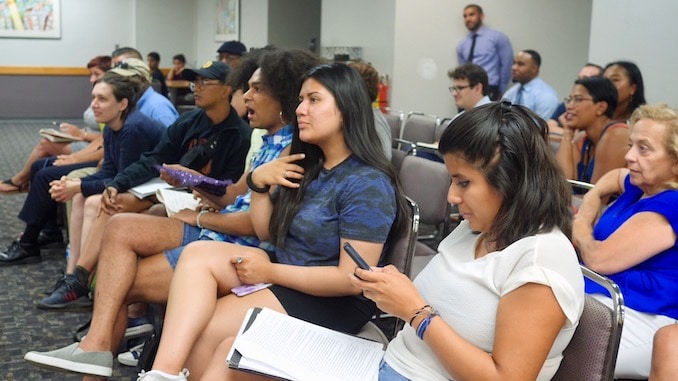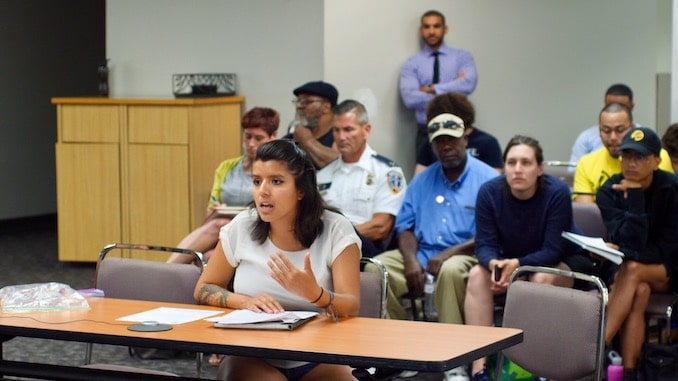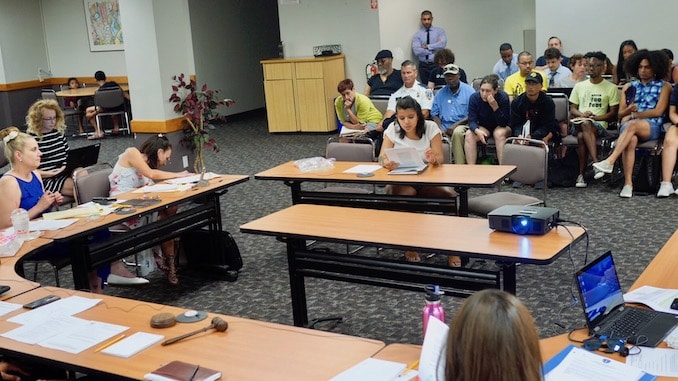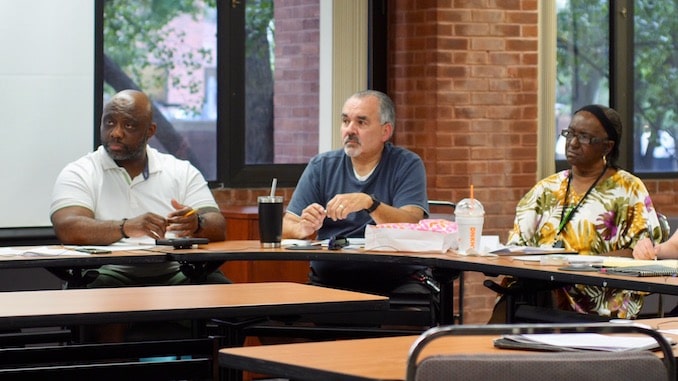The PrYSM lawsuit against the City of Providence over the Gang Database: Why it is necessary
Also: Is the Providence External Review Authority (PERA) being undermined by a conflicted Providence City Solicitor’s office? People might be wondering why the Providence Youth Student Movement (PrYSM) brought a lawsuit against the City of Providence for violations of the Providence Community Police Relations Act (PCPRA), also known as the Community Safety Act (CSA), when there is a public body,
July 23, 2019, 12:44 pm
By Steve Ahlquist
Also: Is the Providence External Review Authority (PERA) being undermined by a conflicted Providence City Solicitor’s office?
People might be wondering why the Providence Youth Student Movement (PrYSM) brought a lawsuit against the City of Providence for violations of the Providence Community Police Relations Act (PCPRA), also known as the Community Safety Act (CSA), when there is a public body, the Providence External Review Authority (PERA) that was established under the CSA to handle such things. A quick review of the last two PERA meetings shows why the lawsuit is necessary.
UpriseRI covered the June 2019 PERA meeting, and reported that the meeting was unofficial because the PERA board could not reach a quorum, as five of the nine members were not in attendance. During the July meeting held last week, the ability of the board to do its job was undermined by the presence of a police liaison, Captain Dean Isabella, who repeatedly said that he had no information on the Gang Database or what the Providence Police Department is now calling the Intelligence Assessment Database, the main bone of contention between community members and the Providence Police Department right now, and the source of both the PERA complaint and the lawsuit. This meant that the very subject that the Providence Police Department should have been prepared to answer questions on could not be discussed.
Further complicating things was the legal counsel for the PERA board, Associate City Solicitor Steven Nelson, who seemed intent on preventing any meaningful discussion on the violations of the CSA by the Providence Police in regards to the Gang Database. Though the meeting agenda clearly stated that item 4 would be “Discussion relative to Providence Police policies to be reviewed by PERA,” Nelson counseled the PERA Board that discussion of the Gang Database was not on the agenda, even though the Gang Database is a Providence Police policy. If, as Nelson seems to have maintained, the specific policy was not properly noticed in the agenda, then this is a clear violation of the Open Meetings Act (OMA), which states that meetings must be noticed with as much detail as possible.
A more probable explanation for Nelson’s obstructionism is that his official duties for the City of Providence as an Assistant City Solicitor includes civil litigation, and he was acting in defense of the City of Providence in the face of a probable lawsuit, not as an advisor to PERA. This seems to present a clear conflict of interest on the part of Nelson.
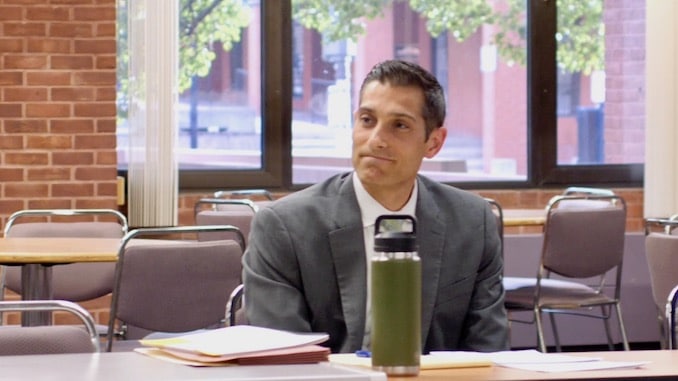
Nevertheless, the PERA Board did hear some discussion of the Gang Database. Below are six videos, provided to me by Selene Means, who was able to be there when I wasn’t. Means also provided all of the photographs that accompany this piece.
[Note that in the discussions below, the terms PCPRA and CSA are used interchangeably, as are the terms “Gang Database” and “Intelligence Assessment Database.”]
PERA board member Kenneth Cohen, a former Providence Police lieutenant, began the discussion by asking about what training is given to our police officers regarding the PCPRA and what are their obligations under the act.
“It’s one thing to have an ordinance, it’s another thing to people on the job,” said Cohen. “Yeah, I’m supposed to know everything, but…”
New officers, noted Cohen, learn from the senior officers, and the senior officers don’t really know their obligations under the act.
“It probably stills exist today, like it was when I came onto the job, [you’re told] ‘Okay, forget everything you learned in the Police Academy, this is really how things work.'”
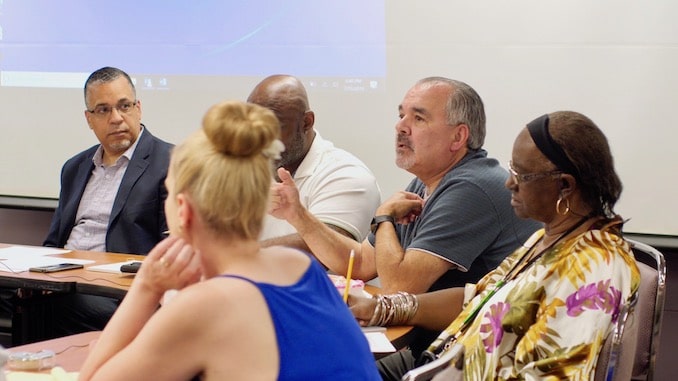
PERA is supposed to be given copies of new policies by the Providence Police Department for review, but PERA never received the new Gang Database policy, aka the Intelligence Assessment Database. The Gang Database policy is also not available on the Providence Police Department website. Cohen suggested that PERA request an explanation from Police leadership, either Chief Hugh Clements or Commissioner Steven Paré.
“If I may interject regarding this agenda item four,” said Counselor Nelson, “In reviewing this agenda item, and some of the relevant cases under the Open Meetings Act, I think that there may be some issues with respect to notice that was provided to the public here. In reading this, I interpreted it, without knowing what was going to discussed tonight, I interpreted it as overarching policies that were going to be discussed at some point in the future for this board, as opposed to having a specific discussion about individual policies.”
Cohen said that he just wanted to know if the policy exists, and if it exists, how PERA could get copies of it for review.
“I would just caution the board about having a substantive discussion about specific policy because it’s not specifically on the agenda,” said Nelson. “What you can do is have a vote to amend the agenda to have a discussion but if you do that you can’t take any votes on the discussion this evening. That’s all.”
I’ll note here that in my experience, this is a fairly common tactic, using the Open Meetings Act, which was created to allow the public more access to the government, as a way to prevent the public from accessing the government.
A motion to require the Providence Police Department to provide PERA and the community with any policies that may impact the PCPRA 30 days before implementation was then blocked by Nelson because it would be a violation of the Open Meetings Act. In this case, Nelson was correct, but his previous points about the substantive discussion were bullshit.
Justice Gaines, a member of the PrYSM CSA team, clarified the law. “In terms of discussing police policies, you wrote on the agenda that you’ll be discussing Providence Police policies and thus you can discuss, even if you can’t vote on anything specific, you can discuss. Providence Police policies because that was on the agenda and as a member of the public, that’s what I read.”
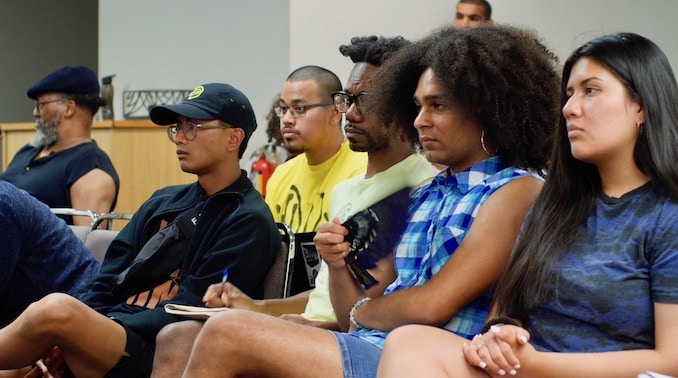
Captain Dean Isabella confirmed that there is Police training to make sure that all officers are familiar with the rules and regulations of the CSA. “There is also a refresher course for specific parts of the policy as they come up.”
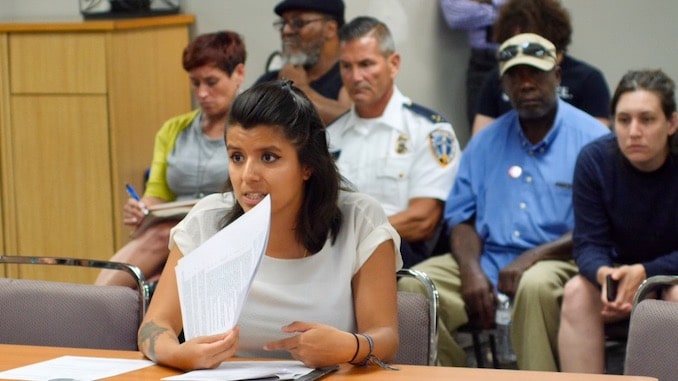
“I spend a lot of time looking at how Providence Police Department policies,” said Shannah Kurland, Community Lawyer for PrYSM, “I think one thing that happens is that there’s system where the policy is promulgated and it goes to all personnel. What it means is that everybody gets an email link and all they have to do is open the link and click, and you’re done… It’s a human nature kind of thing: You’re in a hurry, you kind of work through it and that’s what happens. That doesn’t give folks a good education and I think especially in the case of all the different implications that came up with the CSA that there’s so much there [and] so much misinformation about it too, that I honestly believe a huge number of the officers on the street just simply do not understand the provisions of it. It’s not even an issue of wanting to follow it or not wanting to follow it, but [the police officers] honestly don’t know what most of the provisions are.
“There’s this other big issue around what happens with the creation of the policies that are supposed to go to PERA for review and they just haven’t been, from what I can see,” continued Kurland, who mentioned that PrYSM’s lawsuit would be hitting the court in a few hours.
When Gaines asked Counselor Nelson about the status of the City Solicitor’s review of the Gang Database, Nelson replied, “I’m here in the capacity to advise the Board on OMA, not to advise the Board on any other legal matters.”
It may have been better for Nelson to recuse himself at this point, given the apparent conflict between advising the Board and the pending lawsuit from PrYSM against the City.
“I’m not here in that capacity,” said Nelson.
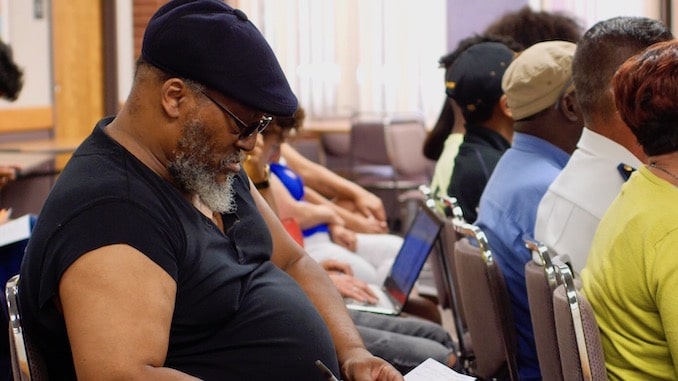
“If you’re just here to advise the Board and we can’t ask you questions, what are you doing here?” asked Malchus Mills, part of the PrYSM CSA team. “It’s more than that. It’s just more than that going on here and you can see that.
“So what sense does it make for you to be here, unless you’re going to have someone else here to answer the questions that either you don’t want to or that you can’t answer or not supposed to? Because we’re here to get answers. We’re here to start something that is for the community and folks want to know what’s going to happen and what the whole deal is. We’re not here to talk about, ‘Well I can’t answer that.’ We’re not here to hear that.”
“The police ordinance that I referenced earlier, General Order 360-10, the Intelligence Assessment Database, otherwise known as the gang database, has multiple illegal things,” said Gaines, addressing the PERA Board. “It was not put online publicly until [PERA] Executive Director [Batista] asked, or told the police it wasn’t online publicly. So [the policy] was active from December 10 till about June 16, illegally, completely illegally.
“Also within [the Gang Database], the criteria that are laid out to put people on the Gang Database, many were illegal, including a First Amendment violation,” continued Gaines. “So we’re talking very serious legality issues that violate the Providence Community Police Relations Act.
“Now, as the City Solicitor is here to advise [PERA] as a Board, and you as a Board have a responsibility to review of these policies, you as a Board could ask your counsel, what should you do about the illegal Gang Database.”
“I’m not here in that capacity,” said Nelson.
“Yes you are,” said Gaines.
“I’m just not,” repeated Nelson.
“You’re here to advise the Board,” countered Gaines. “They are asking you about your responsibilities…”
“It’s also not on the agenda,” complained Nelson.
“It is on the agenda!” objected Gaines.
“No. Gang Database is not on the agenda,” said Nelson.
“There is no current lawsuit at this precise second that has been filed by any of us here or any party as far as I know, around the gang database,” said PrYSM CSA team member Vanessa Florez-Maldonado. “So, because there is no lawsuit I don’t know what this figurehead [Nelson] is doing here. I also don’t understand why we can’t have a discussion about a policy, and or do you need us to rehash the policy, do we need to go over why it’s illegal, since the last meeting didn’t count because there wasn’t a quorum?”
The Gang Database policy that PrYSM objects to was established December 10, 2018, according to information obtained by the PrYSM CSA Team through an Access to Public Records Act (APRA) request. Despite letters to the City Solicitors office, the policy is currently still in play, said Flores-Maldonado.
“We have on record Chief Clements saying there is no actively maintained Gang Database, but, through this APRA we did we found out this criteria [for inclusion on the Gang Database] is based on ‘association,’ is based on racism, is violating the First Amendment” said Flores-Maldonado. There were many other APRA revelations that show that the Gang Database was being maintained by someone at the police Department, “we don’t know who.”
“There are 15 criteria and each has a point value assigned to it… Number 11 is my favorite: Contributor in game publications gives you eight points,” continued Floez-Maldonado. “What is a gang publication? because I know regular publication wit… Just because I’m publishing ‘Gang Weekly,’ that’s my First Amendment right. That is literally in the Constitution that I can do that… If I start publishing a Gang Weekly column tomorrow, that already gives me eight points. I only need ten points to be listed as a gang member.”
“We met with the City Solicitor’s office. We asked them, can you please rescind this? We were told we would have a response today and we haven’t had a response. So now, the fact that the City Solicitor is coming into this meeting saying we’re not going to talk about this,” concluded Florez-Maldonado. “I have you on record you saying that you’re going to give me a response by Monday but now your response is ‘no comment,’ no response, ‘we can’t talk about this,’ that is not a response… I feel like I’m being lied to about this.”
“As the City Solicitor, you’ve been assigned to advise this Board,” said a PERA Board member. “Can you please advise us as to why this rule has yet to be rescinded?”
“I cannot,” said Solicitor Nelson.
“Are you here to advise this Board?”
“I’m here to advise this Board on the Open Meetings Act,” said Nelson.
“You need a new solicitor,” said Lisa Scorpio, sitting in the audience.
“So it’s frustrating, right?” asked Flores-Maldonado. “I’m frustrated, you’re frustrated… I don’t know who the City Solicitor is advocating for. It’s not for us, it’s definitely not for you all, because this is really what you’re all supposed to be doing, reviewing this criteria.”
“What would be your recommendation,” asked PERA Executive Director José Batista, “given how complicated this is? Let’s say tomorrow item number one on my to do list is to begin doing research to begin trying to make changes to this thing? Do you have any recommendations for that part of it?”
“I don’t really,” said Florez-Maldonado. “The only thing I would recommend is looking into one the history of gangs, into why gangs exist in the first place, which, surprise, is because of police, because of criminalization, because poverty, lack of resources, it’s because of war and capitalism and white nationalism that has created these gangs in the first place.
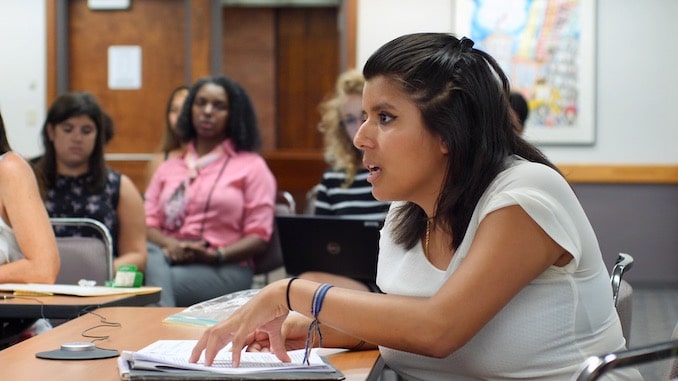
“I can’t tell you right what to put on the gang criteria that might be legally operable under the CSA because I’m not going to help lock up my people. If you’re looking to figure out a way to you know develop a Gang Database that’s within CSA law, I truly cannot help you,” continued Florez-Maldonado. “I’m realizing that things that are told to me at face value I cannot take, that I have to dig deeper and see deeper because I was told there is no Gang Database, but hey, surprise, there is… Quite frankly we don’t recommend anything about a Gang Database. There doesn’t need to be a Gang Database.
“Gang violence isn’t about what people think it’s about. It’s about folks of color, particularly people of color, people who look like you [Batista] and me, people who look like this, [here Florez-Maldonado referred to those attending the meeting] people who don’t have resources, who don’t have jobs, don’t have housing, who don’t have schooling, who don’t have the very basic necessities of life, who need to figure out a way to get there.
“If gang violence is really the thing that keeps the Providence Police up at night, finding new ways to deal with that, that isn’t just putting handcuffs on our people, is what they should be doing,” concluded Florez-Maldonado.
“I find it disheartening when we have the Police Chief in front of our board and now we have the community saying something else,” said a member of the PERA board. “So this is something our board needs to take a look at.”
“You are asking for recommendations on what to do,” said Malchus Mills. “Take the Gang Database down. If this is illegal, why do you have it? The police are not dealing in good faith here. Period. That is what the real deal is.”
“The City Solicitor did get back to us, late in the day, saying that their client [the Providence Police Department] does not wish to rescind [the Intelligence Assessment Database] it,” said Attorney Kurland. “My take is that the Providence police Department is refusing to take down its illegal policy… What you get is like an armed military coup and 400 and change guys walking around our neighborhoods with guns will put up the policies, doesn’t matter about the law, yet any one of us even like thinks about annoying an officer and we get caught out on XYZ criminal charges…
“It’s okay for the police department to break the law because I guess they’re above it,” continued Kurland. “In theory that means armed coup, the police department is running the City, as I’m sure they might enjoy doing, except that aren’t we supposed to have this thing at the head of the executive branch called a Mayor? Since this crap’s been going on now since January 3 of 2018, when we discovered it, notified the City Solicitor, sent a copy to the Mayor… and where is the Mayor’s office? Why doesn’t he just call Colonel Clements or Steven Paré, who he supposedly appointed and say, ‘Steve, what’s going on? You actually have to take this down because it’s illegal. I mean, I think the Mayor was a law professor or something.
“They’re supposed to understand the Constitution and be able to read an ordinance,” concluded Kurland.
A member of the PERA Board asked Captain Isabella to step up and answer questions about the Gang Database policy.
“I have no information on that policy,” said isabella.
“So, do you have a Gang Database?”
“I don’t have any information on that policy,” repeated Isabella. “As far as I know, we do not. We had a Gang Database years ago, that was dismantled.”
“What about this current policy [the Intelligence Assessment Database]?” asked the PERA Board member.
“This current policy? I don’t know anything about that,” said Isabella.
“Just to give a little bit of background… back before the CSA passed a second vote we have a Community Safety Act working group – I was on that, Shannah [Kurland] was on that for brief moment – During those meetings we had multiple conversations about the criteria regarding the Gang Database and the restrictions in the CSA,” said Gaines. “In one of those conversations, that went on for three meetings, was whether or not ‘association’ would continue to be a restriction [and] no longer be allowed [to be used as] gang database criteria. We hashed it out and at the end of those meetings it was decided that ‘association’ would stay in the Providence Community Police Relations Act and would not be allowed to be a criteria.”
[See my coverage of that meeting, with full video.]“During those those meetings Chief Clements was concerned because every other city used ‘association’ and we said,’That’s great for every other city, that’s not what we want in Providence. We’re not going to be every other city, and that’s why it’s not going to be allowed,'” said Gaines. “But what happened, with what the criteria currently are, is that they’re almost copying word-for-word from the Boston Police Department‘s Gang Database policy. If you Google ‘Boston Police Department’s Gang Database policy’ you’ll see that [Boston is] being sued right now in state court by the ACLU for violations of people’s constitutional rights. And our Police Department decide to copy those word-for-word, even though Boston didn’t have a CSA – they could use whatever criteria they wanted.
“That was not the case here, and what I’m continuing to see and from the reports that I handed out last week that I got from an APRA request that also have not been public, we know that the gang database is being maintained regardless of which individual officers know about it or not,” continued Gaines.

“The Police decided to enact a policy. They did not publish it online, they did not tell you [PERA]. Now, when it’s clear that those things are illegal, criteria that were copied from another city’s police department that’s currently under lawsuit for the same criteria, they are no longer listening to conversation, no longer wanting to come to the table to talk about how to make it better, and now our city solicitor refuses to comment on a public policy at a public hearing about gang database policies.
“So all of these meetings where we came in really emotional and angry and yelling about the police and this unequal level of power – when I was yelling about objectivity and how this is not a fair fight – It’s because the police continue to be able to do whatever they want and we have so little recourse to deal with it,” said Gaines. “So when it comes to a complaint process where you have a police officer stopping an 18 year old with his little sister in the car, saying, ‘You are wearing blue so I stopped you,’ we don’t know what to do and our city refuses to help us.
“That’s what I am saying to you all, about this board and the importance of it to keep the police accountable, because they refuse to be accountable, and they break the law and we can’t do anything about it. That’s the charge of this board, and I’m tired of pretending like I’m just angry and mad for no reason and for people to tell me to be calm, when this shit is affecting people’s lives on a daily basis in the city and the police refuse to act in accordance with what the people here want and need.
“They talk about protecting us and safety, but if they can’t even read and fricking make a policy – I’m not a lawyer why do I keep telling the City Solicitor how to run a meeting? Why am I in meetings with police officers and they lie to me to my face and I can’t do anything about that?” concluded Gaines. “That’s what we’ve been saying for the last year and a half. It’s not to yell at you, it’s just this is something that folks in our community have been fighting for decades and we’re tired…”
Corrections:
- PrYSM does not yet have a complaint on the Gang Database policy.
- The Gang Database was operational as of December 10, not December 18, as previously reported.
UpriseRI is entirely supported by donations and advertising. Every little bit helps:
Become a Patron!



